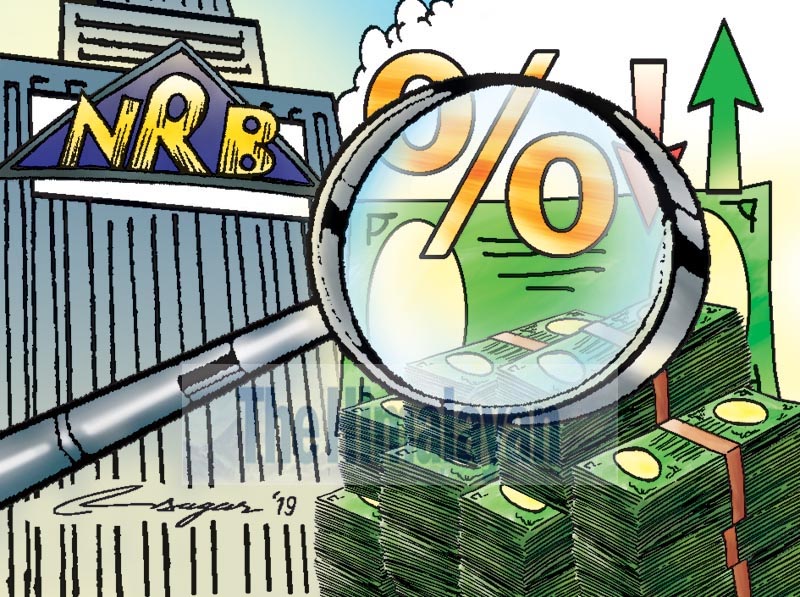Private sector players provide mixed feedback
Kathmandu, July 24
The Monetary Policy 2019-20 unveiled by Nepal Rastra Bank (NRB) today has received mixed feedback from the private sector players.
“We are happy with the announcements made in the Monetary Policy related to controlling inflation, managing liquidity, stabilising interest rates, facilitating and encouraging the merger and acquisition process in the banking sector and finally ensuring financial stability,” said Gyanendra Dhungana, president of Nepal Bankers’ Association.
“Actually, the policy has largely addressed the concerns of the banking sector.”
He also welcomed the initiatives to narrow down the interest rate spread, maintain the cash reserve ratio as it is and expand the refinancing window to address credit crunch through the Monetary Policy.
Anil Shah, chief executive officer at Nabil Bank, was also positive on the central bank’s Monetary Policy. According to him, the policy has focused on stability of the banking and financial sectors and focused on meeting the economic growth target determined by the government. “However, the government needs to do more homework for financial stability as well as proper implementation of the Monetary Policy,” he added.
On the contrary, Chandra Dhakal, vice-chairman of Federation of Nepalese Chamber of Commerce and Industries, said that private sector players are not too happy with the Monetary Policy. “While the central bank had hinted at adopting ‘forced merger’ policy in the banking sector, the Monetary Policy has made merger and acquisition optional,” he said, adding that the policy has failed to encompass the concerns of the entire private sector.
Dhakal further said that the FNCCI will release an official statement on the Monetary Policy after studying it in detail.
Meanwhile, Pawan Kumar Golyan, chairman of Golyan Group, also expressed disappointment that the Monetary Policy adopted an ‘optional’ stance for merger and acquisition in the banking sector.
“The policy did not include any promotional packages for tourism, hydropower and agriculture sectors, which could reduce the country’s alarming trade deficit.”
Moreover, the policy does not include any provision on refinancing for export promotion and hedge funds, he said, adding that the policy also disheartened him as an industrialists as it lacked measures for export promotion.
On the other hand, Bhisma Raj Chalise, chief executive officer at City Express Finance, said the Monetary Policy is quite satisfactory. “It is neither encouraging nor discouraging. However, the policy promotes financial stability.”






